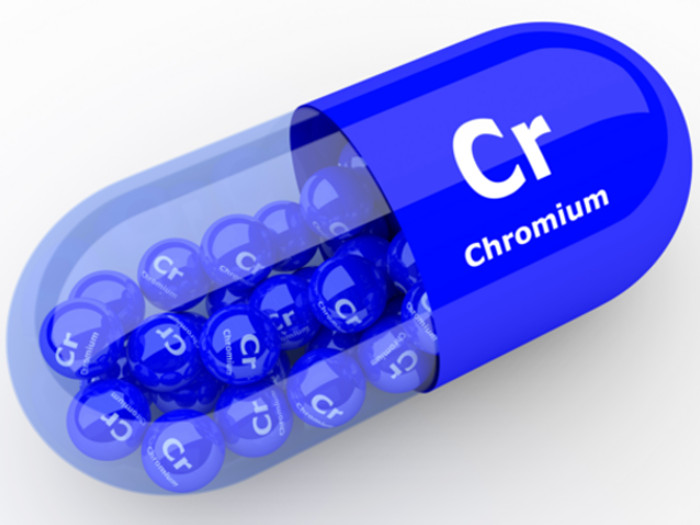Chromium is a chemical element, with atomic number 24, but it also comes in a dietary form – trivalent chromium (Chromium III) – that the body can use for key processes. There is some debate about the role of this trace element in overall health, particularly for healthy people, but it is said to have an effect on those who are suffering from diabetes.
Trivalent chromium has a direct effect on the level and activity of insulin in the body, which is necessary to regulate the level of glucose. Depending on what country you are in, the recommended daily requirement of chromium may differ, but the general range is between 24 and 45 μg/day, which is lower than the recommended amounts from a few decades ago. Not all chromium forms are good, and chromium toxicity can occur when other types are consumed, such as chromium VI. Caution should be taken when taking dietary chromium supplements, as excessive intake can cause unwanted side effects. [1] [2] [3]
Signs & Symptoms of Chromium Deficiency
One of the most noticeable signs of a chromium deficiency is a sharp rise in anxiety levels, coupled with a sharp decrease in energy levels. Muscle weakness or a slow rate of growth or development can be the major symptoms in young people. Without chromium in the body, you are less able to effectively produce insulin, and struggle to regulate stress hormone levels as well. Mood swings are also common. [4]

Causes of Chromium Deficiency
The major causes of chromium deficiency include
- A lack of this trace element in your food
- Poor absorption
When you consume foods that are primarily processed or highly refined, a good amount of the bioavailable chromium will be lost. Therefore, eating whole foods and not relying on refined foods can be a way to stabilize your levels. [5]
Furthermore, the older you get, the more difficult it is to uptake chromium from your diet, putting you at much higher risk for a deficiency in this element. The use of certain medications, such as corticosteroids and antacids, may also make it harder for your body to take in as much chromium as it needs.
